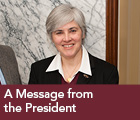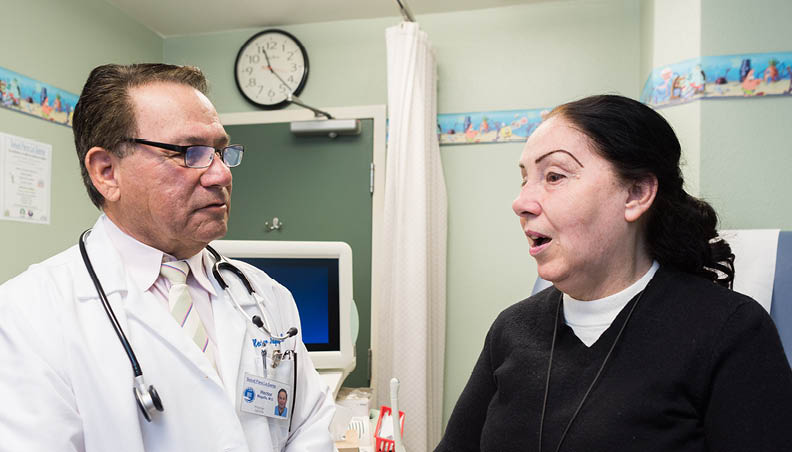by Mary A. Rogier, Community Vision’s President.
I’ve been thinking a lot about poverty lately.
That is probably not surprising, as we recently have been launching some new activities to combat hunger and food inequity, especially in parts of our Central Valley service region where people suffer greatly from lack of access to food. We’ve also made loans recently to some wonderful organizations which provide critical services related to food – for example, the Berkeley Food and Housing Project, which has offered a comprehensive array of essential services to homeless people and families for nearly five decades. Or the Vallarta Supermarket, a sparkling new full-service food market, located in a part of Fresno formerly considered a “food desert.” Or a number of small business loans to local farmers along the Central Coast.
But beyond that, a disturbing undercurrent has been running throughout the national conversation we’re having over the overall concept of assistance to poor people. In the current national debate over the appropriate way to provide national health care insurance, for example, some have argued that the right way to pay for it is to drastically cut Medicaid – the life-saving anti-poverty program designed many years ago to provide basic services for poor elders, children, individuals and families across our country.
The subtext of this national discussion makes it sound like assistance to the poor using tax dollars is somehow morally wrong – and even that it is somehow a moral imperative to take that money away. Especially lately, it seems that many of our most prominent and powerful public figures seem to feel that way.
This, of course, is nothing new. But our leaders didn’t always believe that spending government dollars to alleviate poverty is wrong. In fact, years ago, it was quite the opposite. Back in the middle of the last century, Lyndon Johnson declared a national War on Poverty. LBJ was no kneejerk liberal, but he spoke of a moral responsibility to address the hunger and poverty.
So did Robert Kennedy, who observed families suffering from hunger and deprivation while visiting poverty-stricken urban and rural areas of our nation – trips which became famous in their time and helped expand programs which still assist Americans in need.
Along with many others, Kennedy used his position of privilege and eloquence to fight for social change – efforts which built or expanded the basic safety net programs, starting with the three most important – Social Security, Medicaid, Medicare. While poverty is still with us, these efforts over the years have vastly reduced abject poverty and improved the health, education, and economic prospects of millions of Americans.
Memorably, Kennedy once said: “I believe that, as long as there is plenty, poverty is evil. Government belongs wherever evil needs an adversary and there are people in distress.”
That’s given me something to think about, too.
**************************
Fortunately, many of us in Northern California are represented by politicians who don’t really need to be reminded to take responsibility for fighting poverty. But it’s still important for them to hear that you recognize and appreciate their work. Call your congressperson. More importantly, call your aunt in Ohio or your friend in Florida: If they raise their voices, they can change votes, and that can change lives. They can go to www.usa.gov to find the officials who need to hear from them.
 About the Author
About the Author
Mary A. Rogier is Community Vision’s President. She has been with Community Vision for 19 years.





